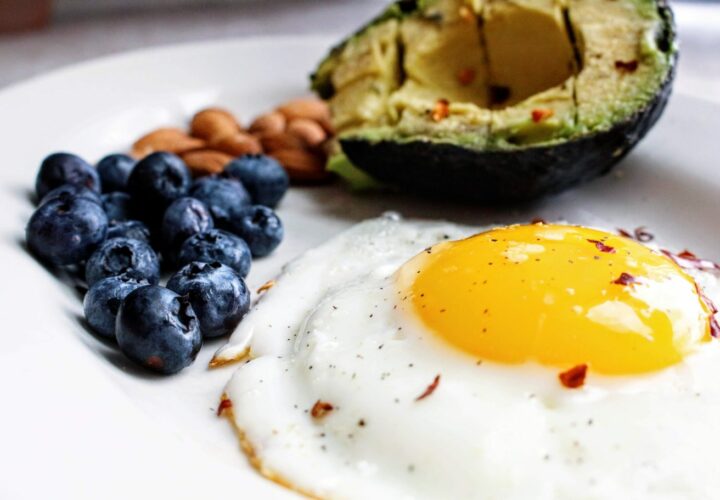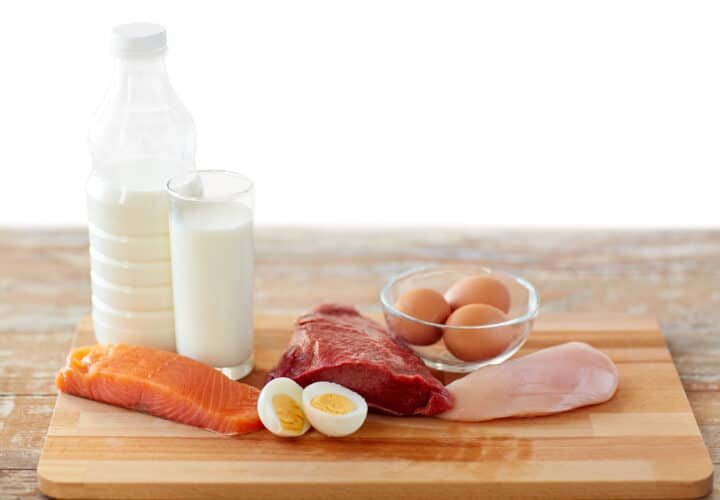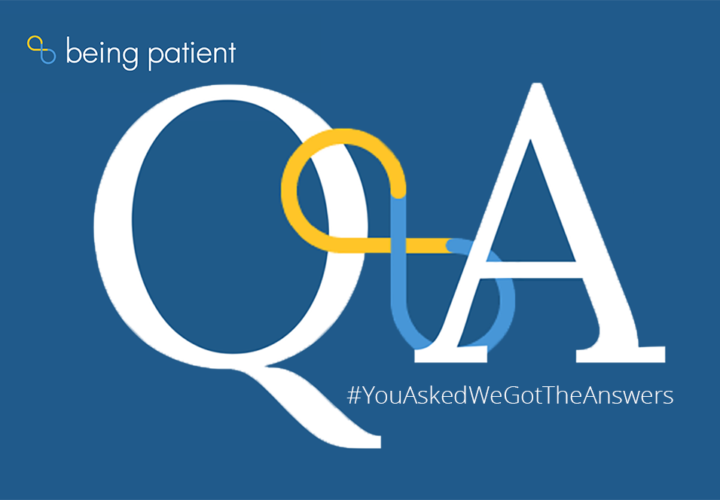We know added sugar in processed foods like soft drinks and breakfast cereals could elevate your body’s glucose levels, causing health issues like obesity or cognitive decline—and high glucose levels have been tied to memory problems in studies. But is all sugar bad? A new theory suggests that a lack of glucose could also increase Alzheimer’s risk. Dr. Ed Blonz, biochemist and nutrition researcher at UCSF, recently introduced the neuroenergetic hypothesis, which argues that Alzheimer’s develops from an age-related lack of glucose in the brain.
- Blonz said that as we age, less glucose reaches the blood-brain barrier, or the brain’s ‘border guard’ that controls what substances enter the brain
- According to Blonz, because the brain relies on glucose as its primary fuel, when there is a lot of glucose elsewhere in the body, but not enough in the brain, the body reacts as if the brain has been invaded by a bacteria or virus; these forms of microbial substances also rely on glucose for energy. Blonz adds that the immune system reacts, as it does with other invasions, causing inflammation and the production of the brain’s own antimicrobial substances, one of which is beta-amyloid. However, he said that because in this case, there is no microbial invasion, the beta-amyloid and inflammation don’t solve the problem. As this misguided process continues, beta-amyloid, or the toxic protein that is often found in Alzheimer’s patient’s brains, continues being produced
- While Blonz recommends avoiding excess sugar that is found in processed foods, he said glucose and other carbs found naturally in whole foods are reasonable to include as part of a healthy diet
- When the body goes into starvation mode or someone goes on a ketogenic diet and stops eating carbs, the body no longer stores glucose and must rely on a “secondary fuel.” While the body uses fats for energy when we’re not eating, fats cannot burn completely without glucose and do not fully metabolize, producing a bi-product known as a ketone that can give our brains energy
Blonz said people who have gone on long-term ketogenic diets that are plant-based do not typically report any problems, but most people go on poorly-constructed ketogenic diets that include fried foods, leading to other health problems. Blonz adds that those who are healthy, exercise and eat plant-based diets do not need to go on a ketogenic diet because they already receive enough ‘fuel’ from glucose.
While he said there is a test that measures the ability of glucose to cross the blood-brain barrier, the test is not being used to assess changes in this ability as we age. He thinks that once the medical community embraces the neuroenergetic hypothesis, doctors will suggest patients take this test around their 30s, then get re-assessed periodically, similar to getting colonoscopy screenings for colon cancer. If doctors determine the brain is no longer getting the glucose it needs, Blonz said therapeutic steps could be taken. For example, doctors may recommend someone go on a ketogenic diet. These therapeutic methods would help prevent the build-up of beta-amyloid that results from a lack of glucose decades before it has any significant impact on cognition.
Being Patient spoke to Blonz about the best way to get ‘fuel for our brains,’ whether ketones are a better source of ‘fuel for our brains’ than glucose, why we produce less glucose as we age, types of ketones and how we may be able to prevent Alzheimer’s through our diet.
Being Patient: What does it mean when researchers say ‘fuel for our brains’?
Dr. Ed Blonz: The brain is one of the more important organs in our body and it’s set up in a special area. It’s put inside a bony, protective skull and it’s got its own little border guard; the border guard only lets certain substances into it. This border guard is called the blood-brain barrier. We might think that when we cut ourselves or have an accident and we’re bleeding that the same blood flows into our brain, but it does not. It goes up through our neck and then it flows near the blood-brain barrier and only certain substances are allowed into the brain, like proteins. The blood-brain barrier basically makes sure that only the right stuff gets in and the right stuff gets out. The reason this is important with regards to Alzheimer’s disease is that the glucose which is in our bloodstream can be in very high levels for some people, but it’s not necessarily going to be in a high level in our brains. As we age—even people who never get Alzheimer’s—less and less glucose gets across the blood-brain barrier. It’s my feeling that this is one of the basic paradigms that we need to look into to try and figure out why Alzheimer’s begins in the first place.
Being Patient: Glucose naturally fuels our brains, but what does it mean when researchers call ketones an ‘alternative fuel’?
Dr. Ed Blonz: Let’s say we’re starving and haven’t eaten for a while. With no food in the body, we don’t just drop dead. Our brain doesn’t just shut down. The body has ways of dealing with secondary and even tertiary fuels. We’ll break down our muscles and use our fats; we’ll use all the resources we have to make sure the brain is well supplied because the brain’s the thing that has to get us thinking about where to get our next meal. When there’s no food coming in, our body doesn’t really store glucose and glucose is the primary fuel for the brain. When we’re resting, about two-thirds of the glucose in our blood is actually used by the brain for its metabolism; it relies on and craves glucose. When we’re starving, where is the brain going to get the glucose? It’s not. It has to turn to one of those secondary fuels. One of the secondary fuels is a breakdown product of fats. Now, when we’re not eating, we use fats for energy to fuel the body, but when we don’t have glucose, the fats don’t burn completely. They’re only partially metabolized and one of those bi-products is what’s called a ketone or a ketone body. That’s the substance which has the ability to go into our blood, cross that blood-brain barrier and provide fuel for the brain, even when we haven’t had a meal in days or weeks.
Being Patient: Are ketones a better source of fuel for our brains than glucose, and is there a bad versus good type of glucose?
Dr. Ed Blonz: The ‘bad glucose’ is more glucose than your body needs. The ‘good glucose’ is any glucose under that level. There’s nothing wrong with glucose. There’s nothing wrong with sugar, provided it’s in an appropriate amount. When you get too much glucose, bad things start to happen. We end up having the risk of obesity, diabetes and so forth. This is not inherently a part or problem with glucose. It’s only a problem when you have excess glucose. But glucose is very important. It’s the only fuel that releases its energy without oxygen. If I’m at a state of rest, my breathing provides enough oxygen to keep everything going, but if all of a sudden I’m in California, there’s an earthquake, and I need to run out of the room, I wouldn’t have to breathe deeply to get my oxygen level up in my blood to get the energy; no, I could run immediately because I’ve got glucose in my bloodstream and that provides what’s called anaerobic energy, or energy without oxygen. We really on glucose to be in our bloodstream to provide that instant energy. It’s a survival thing, so we always want to make sure there’s glucose in our blood, but not too much, because when you have too much, you can have problems.
Being Patient: Why do we have less glucose as we age?
Dr. Ed Blonz: This is a problem with our vascular system. As we get older, all the sins of our life, whether it’s blood pressure issues, diabetes, obesity, less activity or our vascular system, the blood supply for the body starts to get this accumulation of all our bad habits. The blood-brain barrier is a reflection of the general health of the vascular system, so as our risk of heart disease goes up, so too will the problems with the vascular system that will be expressed in the blood-brain barrier and that’s one of the reasons why less and less glucose is able to cross the older we get.
Being Patient: Have there been any studies on the long-term effects of ketones in the brain?
Dr. Ed Blonz: Ketones will be produced, usually, when our body doesn’t take in enough glucose. This is what’s called endogenous glucose—endogenous ketones—they’re the ones that are produced by our body and the only time our body really produces substantial amounts of ketones is when there’s no carbohydrates around. That’s either through starvation or what’s called going on a ketogenic diet, a diet where there’s no carbs or not enough to provide all the glucose the body needs. There have been studies on long-term ketogenic diets, where you go on these for a long time with no carbs; people have been on that for months at a time and they haven’t really reported any problems, but these are diets that are very well constructed. These are ones that have all the other nutrients and the person’s in good health to begin with. Unfortunately, a lot of people go on the ketogenic diet and eat crap. They eat fried foods, fatty foods, all of the rich foods, and they don’t really have lots of plant-based foods that the body needs to help deal with the fats that we eat. So a poorly constructed ketogenic diet is going to get you into trouble. Now again, I’m talking about endogenous ketones. What about if you were to take ketones orally? These are exogenous ketones.
Being Patient: How many different types of ketones are there and are some forms better than others?
Dr. Ed Blonz: When we are in a low-carb or starvation mode, the body produces three ketones. One of them is called acetone. Now acetone doesn’t really get absorbed and it basically gets exhaled. That’s why people that are on a ketogenic diet are in ketosis, which is a state where you have elevated levels of ketones in the blood. You could actually smell the sweetness in the breath; that is the smell of acetone. The other one is called 3-hydroxybutyrate. And the third one is acetoacetate. Those are the three ketone bodies that are the breakdown products when fat is partially metabolized in a body that doesn’t have enough glucose.
Being Patient: What type of ketone is the best for our brains?
Dr. Ed Blonz: You could do it one of two ways. You can have a fatty acid, which is a precursor to being broken down into ketones, or you could have either 3-hydroxybutyrate, which probably is the best one, or acetoacetate. Those would be the two that you would want, though 3-hydroxybutyrate is probably the most reliable one; right now, they’re doing some research on having ketones given intravenously, and they use both acetoacetate and 3-hydroxybutyrate. But that’s more in the research realm and that’s not something that you’re going to be taking. If it were me, it’d be 3-hydroxybutyrate.
Being Patient: Is there a way to supplement ketones?
Dr. Ed Blonz: Yes, but you don’t want to get ahead of yourself here. Why would you want to supplement ketones? It’s only going to be good for your brain if your brain is not getting the glucose it needs.
Being Patient: How would someone determine if their brain is getting the glucose it needs?
Dr. Ed Blonz: The primary focus of anybody who’s interested in making sure that their brain gets the fuel it needs is not to turn to ketones as the first approach. It’s to eat a plant-based, healthy diet, stay active physically, keep your vascular system healthy and control high blood pressure and diabetes. You need to control your vascular system. That has to be number one. If you’re doing all of that and you’re still having issues, then you might consider using ketones, but that shouldn’t be the first thing you turn to.
Being Patient: Are there any fruits we should consider eating for brain health?
Dr. Ed Blonz: All fruits and vegetables are good for brain health because when you consider a whole food, it’s something that has evolved in nature. It has withstood all the insults that nature could throw its way, whether it’s the oxidizing rays of the sun, insects, bad weather or any type of abuse. A plant can’t get up and run away; it has to have synthesized all of these self-protective compounds and it’s only if we eat that whole food that we get this whole complement of beneficial substances. So whole foods, plant-based, that’s the way to go. There’s nothing wrong with having a REESCE’s peanut butter cup with a cup of coffee. That’s fine, you just make room for it and enjoy it. If you don’t enjoy what you’re eating, what’s life about?
Being Patient: How do we know what’s going on inside of our bodies to monitor our brain health?
Dr. Ed Blonz: It’s a difficult thing to understand because we don’t have any—at the moment—methods of going in and taking a snapshot; the same way that you’d put a cuff on to measure your blood pressure, there’s no way to put a cuff on your head and find out if it’s got enough energy. I recommend that people who are concerned find out what their genetic profile is. I’ve done 23andMe, but there’s other companies that do this. There’s this one particular gene, which is the ApoE gene. We get one gene from our mom and one gene from our dad, so we have two copies of that in our body. People who have the ApoE4 have a higher risk of Alzheimer’s disease, but most people have the ApoE3 and that’s an average risk. In my 23andMe, I’ve got an average risk. I’m very active, I exercise every other day, I keep my weight under control, I eat a healthy, whole foods diet. I do not eat ketones. I don’t need ketones. Because I’ve got a vascular system that’s taking care of business. But if I had the ApoE4 gene, I might think otherwise, or if I had diabetes, hypertension or any of these other factors that could affect my vascular system and how effectively the glucose gets into the brain, but we’re getting ahead of ourselves. We need the data to make sure that this is all connected. I’m looking at all the animal research, biochemistry and the basic metabolic research. To me, the dots are all connected, but we’re looking to connect the dots to get all the neurologists on board to view [an age-related lack of glucose in the brain] as one of the primary causes of Alzheimer’s. Once that happens, there should be tests that you can do, but they haven’t been developed yet. However, there are other ways to detect whether your brain has enough energy.
Being Patient: How much do you believe we have control over lowering our Alzheimer’s risk through our diet?
Dr. Ed Blonz: Through nutrition and lifestyle, I think we have a tremendous amount of control. I mentioned ApoE4. Just because you have ApoE4 is no guarantee that you’re going to get Alzheimer’s, the same way that not having ApoE4 and having ApoE3 or even ApoE2—which is protective—is no guarantee that you won’t get Alzheimer’s. A lot of it depends on what you bring to the party, how you’ve lived your life. You can try to find out whether Alzheimer’s is something that’s present in your family. There are other types of dementia too. There’s what’s called a vascular dementia, where it’s the blood flow to the brain that is impacted by a stroke; this is what causes cognitive impairment. It’s not the same as Alzheimer’s, but it has the same net effect in terms of causing cognitive decline. It’s different, but Alzheimer’s is now believed to be the main source of cognitive decline. The way you reduce your risk is that you’ve got to live a life that is conducive to lower risk. Life is an accumulation of your life’s experiences. It’s tough to get all the way up to the point where something goes wrong and then expect there to be an immediate cure to make it all better. It’s best as early as possible for us and for our children to encourage them to eat well and have a healthy lifestyle so this won’t even be on the plate as a possibility as you get into your sixth, seventh or eighth decades of life.
The other thing is that this is a process that actually begins mid-life. It’s in your 30s, 40s and 50s that the process has begun. It’s only in the 60s and 70s that we may start to experience cognitive decline, but by then, it’s been going on for decades. What I’m hoping is to look at this from a neuroenergetic standpoint and observe people early in life, measure how efficiently—and the tests will be developed—the glucose is getting into their brain, and then they’ll go and periodically—just like we go in for a colonoscopy every now and then—so when it gets to the point that not enough glucose is getting into the brain, we know that the brain is going to start making amyloid and we can discuss why it’s doing that. This is when people will start to change their diet, have those fatty acids that become ketones, and maybe even consider adding those exogenous supplementary ketones to get that energy into the body, but once science is on that track, we will find a lot of different ways to improve the energy status of the brain.
This interview has been edited for length and clarity.





My grandfather had Parkinson’s and his daughter, my mother, went downhill after retiring from a job which she enjoyed. Her spiteful second husband, who had initially adored her, went around saying “nothing up top”, meaning she had become forgetful and nervous. I too am quite forgetful at the age of 72 and I have lost a lot of confidence but my partner is 83 and remembers everything. He does my accounts and sorts out the Inland Revenue/taxman for me. I follow a pescatalian/vegetarian diet and drink red wine daily but only one 3/4 of a glass. I am terrified of Alzeimers which it is obvious my mother was suffering from.!
Very interesting interview. thank you.
does brain cytotrophin make people smarter.